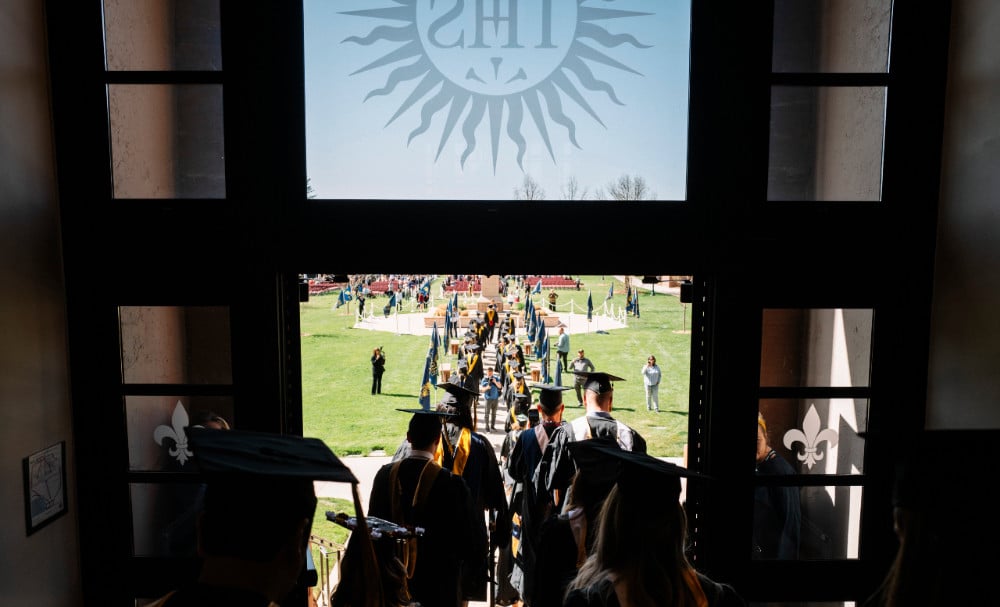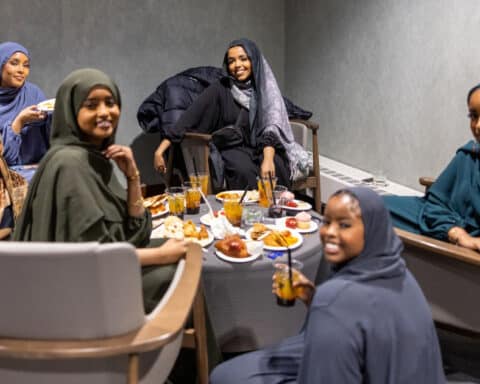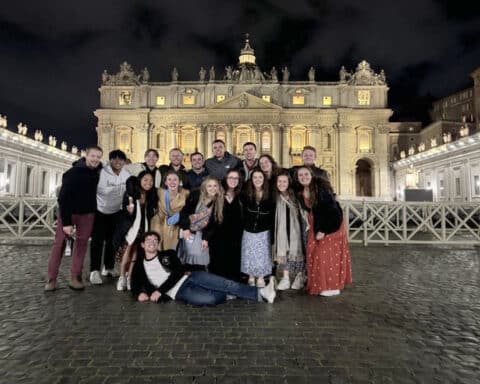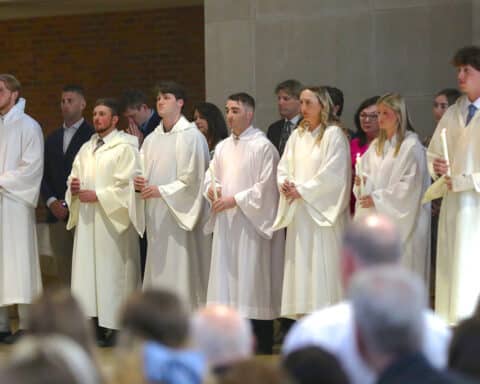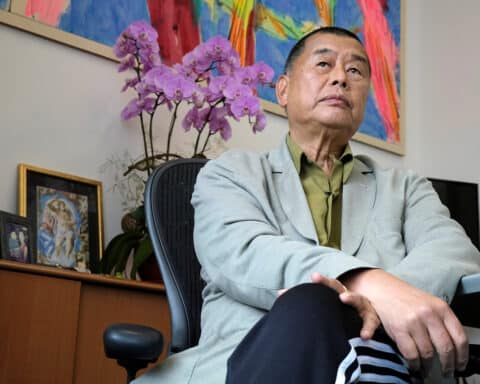Teaching students about their faith on the campuses of Catholic colleges and universities is now an all-hands-on-deck mission, educators around the country told Our Sunday Visitor.
Gone is the robust energy of Catholic culture in America. Gone is the assurance that just as grandpa and grandma before them filled the pews on Sundays and holy days, so would succeeding generations. By the end of the 20th century, congregations that once provided parochial school classrooms, and marched thousands of public school kids to CCD every week, fell off.
At one time, college educators could count on baseline catechetics for most entering Catholic freshmen. American Catholics once observed a common core of beliefs, practices, habits and traditions to build on.
Read more Fall College section stories here.
“There was a drop-off of religious practice in the 1990s; now, the children of those Catholics are arriving, so we have recalibrated what students know,” said Bede Benjamin Bidlack, professor and chair of the theology department at St. Anselm College in Manchester, New Hampshire. “It is a constant balancing act.”
At St. Anselm, courses of study were consolidated to introduce more modern languages into the curriculum to prepare students to live, work and practice their faith in a global society. Religion study now focuses on familiarity with the Bible to produce biblical literacy and Catholic interpretation of the Bible applicable in the world; it also focuses on Catholic theological reasoning to learn how to interpret faith through reading the Scriptures.
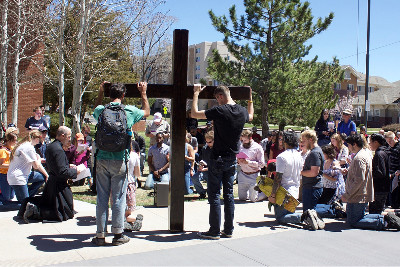
Freshmen at the liberal arts college embark on an education rooted in the teachings of St. Benedict. The Benedictine Christian and monastic tradition emerges in wisdom curated over 1,500 years with the goal of seeking peace through a well-ordered life envisioned by St. Benedict.
Bidlack said that all students, which include Jewish, Muslim, Wiccan, unchurched and atheists, are required to master the Catholic courses about the articles of faith, evangelical elements of faith and the mythological to earn a degree.
“We encourage students with the absence of Catholic culture to instead embrace their faith for all the right reasons,” Bidlack said. “We want them to find their answers within the Church. We hopefully end up with a robust generation of believers.”
Building a foundation
An all-hands-on-deck approach to teaching Catholicism to students at St. Leo University in Florida comes from “a desire to educate the whole student — mind and soul — and a desire to support a student on his or her walk with the Lord in addition to success in their major and career,” said Randall Woodard, chair of the theology department at St. Leo. “A focus is on the vocation and the type of human being the student will be, in addition to the major and job.”
Woodard told Our Sunday Visitor that a reality faced by theology departments at Catholic schools is that Catholic students don’t know what the Faith means to their lives in the 21st century.
“One thing that is unique about many students today is their lack of affiliation and a growing religious illiteracy,” Woodard said. “People are less connected to faith communities and less familiar with the language and grammar of faith. This means much more foundational instruction and also providing a basic language or vocabulary of spirituality and providing a space or invitation for people to put down a smartphone and to consider their purpose and connection to the world and Church.”
He added, “Campus ministry departments provide outstanding support for students to investigate their faith, to encounter God, to connect deeply with others and to serve the world and the Church.”
The expression, “It takes a village to raise a child,” may be trite to some, but it carries a measure of truth at St. Leo University and other Catholic schools.
“Catholic theology departments, as well as colleagues from various other academic disciplines, campus ministers and student life professionals, among others, all play an important role in passing on of the Faith at Catholic universities,” Woodward said.
“Students can find that an idea about prayer that came up in a class may also be a topic of conversation later on with their coach, or a dining services or university safety staff member,” he said.
“A variety of topics are central to theology departments, whose members do take on a unique role in the intellectual and spiritual formation of students. A hunger for encounter with God and holiness seeps into a variety of subject areas in theology, such as introductory courses and, of course, biblical studies, spirituality, sacraments and history.”
‘A real openness’
Catholic schools are finding many students willing to learn their faith because of its absence in their lives, said Timothy Gabrielli, Gudorf Chair in Catholic Intellectual Traditions at the University of Dayton in Ohio.
“I think we are all well aware that the percentage of those who declare their religious commitment to be ‘none’ has risen sharply over the past 15 years or so,” he told Our Sunday Visitor.
However, theology departments are finding dry kindling in their students that is welcoming to a spark.
“It’s become obvious, also, to note the wide polarization in our culture and even in our Church,” Gabrielli said. “Setting aside the debates about the causes of those sociological shifts for the moment, I think we have noticed a real openness among students to discovering something in our tradition that isn’t deeply politicized or reduced to Instagram-able parameters, but offers them insight about living a fruitful life in the world today — that is, it helps them address our most pressing problems personally and socially.”
The University of Dayton’s theology professors have found “approaching theological topics with a ‘hook’ that isn’t merely window-dressing but actually takes a fresh angle into ancient wisdom really attracts students,” he said.
“Catholic universities play such a key role in passing on the Faith, one that is distinct — though not entirely divorced — from the catechetical work done in parishes, elementary and high schools,” Gabrielli said. “One key difference is that university theologians have the opportunity to dive deeper into the riches of the tradition, examine various approaches to difficult questions in the life of faith and expose students to, say, the variety of artistic, musical, liturgical strains in the tradition or the various schools of spirituality or theology in Catholicism.”
Gabrielli concluded: “Young adults are finding their place in the world and discovering more fully who they are. Especially during that moment, the breadth of the Catholic faith seeking understanding offers a greater opportunity — and in some cases a second chance — for young people to discover their place among the Communion of Saints.”
Joseph R. LaPlante writes from Rhode Island.

